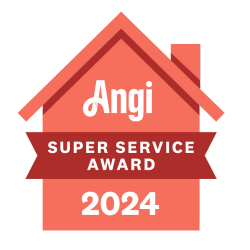Is the summer heat getting you down? For many homeowners, installing a new, energy-efficient air conditioner is the best way to stay comfortable during hot weather. However, the upfront cost of a new AC unit can be daunting. That’s where understanding your air conditioning financing options comes in handy.
This guide will walk you through the ins and outs of air conditioning financing options to help beat the heat without breaking the bank. We’ll explore the benefits of financing, loans, retailer programs, credit cards, and more so you can determine the best choice for your needs and budget.
How Financing Makes AC Units More Affordable
Paying cash upfront for a new air conditioner often means opting for a cheaper, lower-quality model. Financing allows you to:
- Spread out payments over time
- Qualify for high-efficiency units that help lower energy bills
- Access professional installation services
- Protect yourself with product warranties & insurance
By financing a top-rated AC system, you get lower monthly energy costs and fewer costly repairs down the road.
Factors That Impact Financing Your AC Replacement Project
Financing an AC replacement can be a practical option depending on your financial situation and the cost of the replacement. Here are some factors to consider:
- Cost of Replacement: AC replacements can be expensive, often ranging from a few thousand to over ten thousand dollars. If the upfront cost is too high to pay out of pocket, financing can help spread the cost over time.
- Interest Rates: Compare the interest rates offered by different financing options. Some HVAC companies offer 0% interest financing for a promotional period, while others may have higher rates.
- Monthly Budget: Ensure that the monthly payments fit within your budget. Financing should ease your financial burden, not add to it.
- Energy Savings: Newer AC units are generally more energy-efficient, which can lead to lower utility bills. Calculate potential savings to see if they offset some of the financing costs.
- Emergency Situations: If your current AC unit fails and you need a replacement urgently, financing can provide immediate relief without depleting your savings.
- Credit Score: Your credit score will impact the terms of your financing. As with most purchases, better credit scores typically secure better rates and terms.
- Alternative Options: Consider all financing options, such as personal loans, home equity lines of credit, or financing directly through the HVAC company.
- Warranty and Maintenance Plans: Check if financing options come with additional benefits like extended warranties or maintenance plans, which can add value to your investment.
Assessing these factors can help you decide if financing your AC replacement is the right choice for you.
Types of Financing for Air Conditioners
You have several options to finance the purchase and installation of central air, ductless mini splits, portable ACs, and other cooling equipment. Common financing methods include:
- Loans: Banks and credit unions offer A/C-specific loans with fixed rates and terms from 12 to 84+ months. Government-backed loans may also available.
- Retailer Financing: Some AC equipment retailers offer payment plans, often with zero interest, if paid in full within 6-24+ months.
- Credit Cards: Cards with 0% intro APR periods allow you to pay off a large purchase over 12+ months without financing charges.
- Home Equity Financing: You can tap home equity to finance home improvements like an air conditioning replacement.
Air Conditioner Loans
Taking out a loan specifically earmarked for your new AC equipment means getting approved for the exact amount you need. Loans offer predictable monthly payments, fixed interest rates, and flexible terms.
Qualifying for an A/C Loan
You’ll likely need a decent credit to qualify for the lowest rates. Lending criteria also include your debt-to-income ratio and home equity. Government-backed loans through ENERGY STAR and state programs may have more flexible credit requirements, but it’s always best to talk to you HVAC contractor about the best financing options for your project.
Comparing Loan Terms and Rates
Air conditioner loan amounts can range from $1,000 to $15,000+ for 10 to 15 years at 6-12+% APR with a soft credit check. Exact rates and terms depend on your credit score, income, existing debt, and other qualifications.
Carefully compare loan details like:
- Loan amounts/terms
- Interest rates and APR ranges
- Origination/application fees
- Payment flexibility
Weigh the overall costs of loans over the full repayment period. Many lenders also offer online calculators to help estimate personalized payments.
Using Home Improvement Loans
In addition to loans marketed specifically for AC units, you may be able to qualify for affordable home improvement installment loans from local banks and credit unions. The rate can be as low as 5% APR, but you should always do your research and confirm that you fully understand your terms and conditions.
Loan Repayment Term Lengths
Air conditioner loans allow borrowers to spread repayment over 24 months to 10 years, depending on the lender and loan amount needed. Opt for terms that align with your budget – longer terms have lower monthly payments at the expense of higher interest costs.
Special Financing Offers
Shop seasonal sales events for special financing incentives on cooling equipment—for example, 12 months of 0% APR or discounted interest rates for a limited time. Time offers around these peak summer AC sales to maximize savings with promotional financing. Just be sure to pay the full amount before the 0% offer period ends to avoid retroactive interest fees.
Credit Score
If you are concerned about your credit score impacting your ac replacement project, just know that you may have some viable options to overcome this obstacle. Financing an AC replacement project with bad credit can be challenging but is still possible. Here are some options and tips for obtaining financing despite having a less-than-ideal credit score:
- HVAC Company Financing: Some HVAC companies offer financing options specifically designed for customers with bad credit. These may have higher interest rates, but they can provide the necessary funds.
- Personal Loans: Some lenders specialize in personal loans for individuals with bad credit. These loans may come with higher interest rates and less favorable terms, but they can be a viable option.
- Credit Unions: Credit unions often have more flexible lending criteria and may be more willing to work with you to find a financing solution.
- Home Equity Loans or Lines of Credit (HELOC): If you own a home and have built up equity, you may qualify for a home equity loan or line of credit. These options often have lower interest rates than unsecured loans, even for those with bad credit.
- Government Programs: Look into government programs or grants that might assist with energy-efficient home improvements, including HVAC systems. Some states offer low-interest loans or rebates for such upgrades.
- Family and Friends: If possible, consider borrowing from family or friends. This can be a more flexible and affordable option, but it’s important to formalize the agreement to avoid misunderstandings.
- Credit Cards: While not ideal due to high interest rates, using a credit card for the purchase might be an option if the credit limit is sufficient. Be mindful of the repayment terms to avoid falling into more debt.
- Improve Your Credit: If the replacement is not an emergency, consider taking steps to improve your credit score before applying for financing. This might involve paying down existing debt, making timely payments, and correcting any errors on your credit report.
When seeking financing with bad credit, it’s crucial to compare different options, read the terms and conditions carefully, and understand the total cost of the loan. Being diligent in your research will help you find the best possible financing solution for your situation.
Account for All Loan Costs
When evaluating HVAC loans or other financing options, factor in all costs like:
- Origination fees
- Processing charges
- Prepayment penalties
- Late fees
Read the fine print to avoid surprises or extra hidden costs over the full repayment period. Ask lenders to break down total financing terms clearly.
The Logan Difference
As a family-owned company, Logan Services sets ourselves apart by truly caring about our customers and communities. Our highly-trained installers complete an intensive program focused on communication, having all parts on hand to prevent delays, and thoroughly testing systems before leaving a job.
Experienced install managers oversee a mandatory checklist for every job, ensuring all details meet manufacturing specifications. We take time to walk customers through the proper use and maintenance of their new units.
By streamlining permits and warranties, we add a layer of protection on our customers’ behalf. We regularly contribute to community initiatives that align with our values of lending a helping hand.
Our proven approach, backed by experience, advanced training, and conscientious people, sets us apart. We are proud to deliver the Logan Difference.
Frequently Asked Questions (FAQs)
What credit score is needed to finance AC equipment?
FICO scores between 670 and 700 typically qualify for most loans, and the retailer plans at competitive rates. Prime offers require 740+ scores. Anything lower than 670 could require additional work to be done by the HVAC contractor to find a suitable way to make financing possible.
Are there financing options for bad credit?
Yes. There are some options out there with plans that can help those with poor credit or low incomes finance necessary AC repairs or replacements.
Should I take out a home equity loan or HELOC?
If you have sufficient equity available, tapping home equity lines of credit provides affordable long-term financing for improving comfort and efficiency with a new AC system. Always check the current interest rates before pursuing this option.
Can I use an FSA/HSA to pay for air conditioner replacement?
In some cases, you may be able to utilize a Flexible Spending Account or Health Savings Account to fund HVAC equipment. Always check with your FSA/HSA representative to confirm whether or not they allow these types of purchases.
How can I get the lowest air conditioner financing rate?
Focus on boosting your credit score, reducing debt, and comparing personalized rates across multiple lenders and credit cards to find the lowest APR deal. Special financing incentives can also lower costs.




















